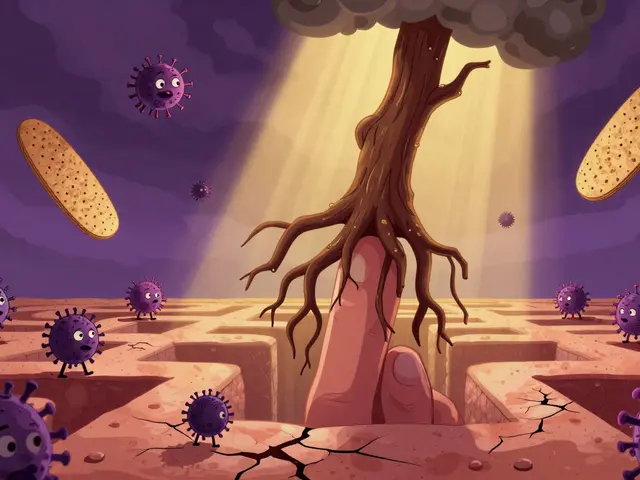Mental health awareness: spot signs, get help, manage meds
Medication can change your sleep and even the content of your dreams — seriously. If you've ever started an antidepressant and noticed vivid or strange dreams, that's a real side effect to track. Mental health shows up in mood, sleep, focus, energy, and how your body responds to treatment. Noticing small changes early helps you avoid bigger problems later.
Look for clear signs: lasting low mood, losing interest in things you used to enjoy, big changes in sleep or appetite, constant worry that disrupts work or relationships, or sudden irritability. If these last more than two weeks or make daily tasks hard, talk to a clinician or a trusted person. Don’t wait until things “get bad”—early contact makes care simpler and faster.
Long-term physical illness often affects mental health too. Conditions that cause pain, fatigue, or frequent clinic visits can cause anxiety or depression. Treating only the body misses half the picture. Ask your doctor about coordinated care so symptoms and meds are checked together.
Medication helps a lot of people, but it can bring side effects like sleep shifts, vivid dreams, low appetite, or slower thinking. When starting a new drug, keep a short log for two weeks: note sleep hours, mood, appetite, and any odd symptoms. That log is the fastest way to give your prescriber clear details and get useful changes.
Practical steps when you struggle
Be direct with your doctor. Say what you feel and give concrete examples: missed days at work, trouble getting out of bed, or panic attacks. Ask about alternatives, slower dose increases, or timing changes—sometimes taking a pill at night instead of morning reduces sleep effects. Also ask a pharmacist about drug interactions if you take heart, blood pressure, or diabetes meds.
Build small routines you can keep: short daily walks, set sleep and wake times, and two short breathing breaks daily. Small routines protect sleep and make moods steadier. Use trusted local resources—hotlines, community clinics, or online therapy—if in-person care is hard to reach.
Practical tips for meds and online purchases
Buying meds online is fine if you’re careful. Choose sellers that require prescriptions, show verifiable contact info, and have real customer reviews. Avoid any shop that promises instant cures for mental health. If a medication causes troubling side effects, don’t stop it suddenly—contact your prescriber to taper or switch safely.
If someone you care about is struggling, listen more than you advise. Ask specific questions: "How's your sleep?" or "What was hard today?" Help with small tasks like booking an appointment or checking pharmacy credentials. Small, steady actions matter more than dramatic speeches.
Mental health awareness is about spotting warning signs, managing meds smartly, and reaching out early. Keep notes, ask practical questions, and use trusted sources. You don’t have to fix everything at once—consistent small steps lead to real change.
The Importance of Mental Health Awareness in Reducing OCD Stigma
As a blogger, I can't stress enough the importance of mental health awareness in reducing the stigma surrounding OCD. By educating ourselves and others about the realities of this disorder, we can foster empathy and understanding, ultimately breaking down the barriers that prevent people from seeking help. I've seen firsthand the power that knowledge and open conversations have in dismantling misconceptions about OCD. Mental health awareness not only encourages those who are suffering to seek support, but it also helps create a more inclusive and compassionate society. Let's continue to raise our voices and normalize conversations about mental health, so that together, we can erase the stigma and support those who need it most.





